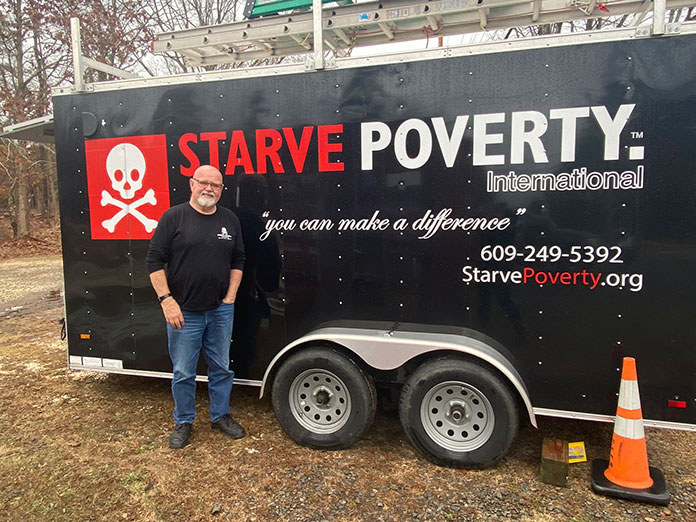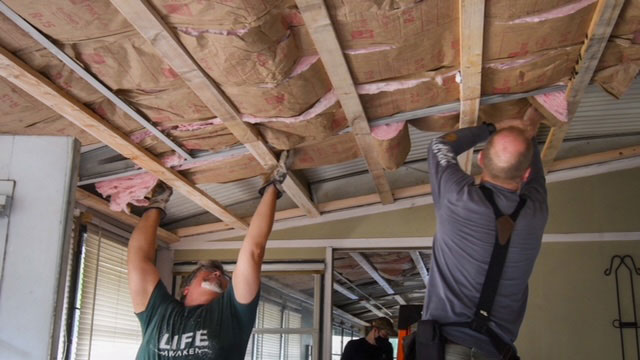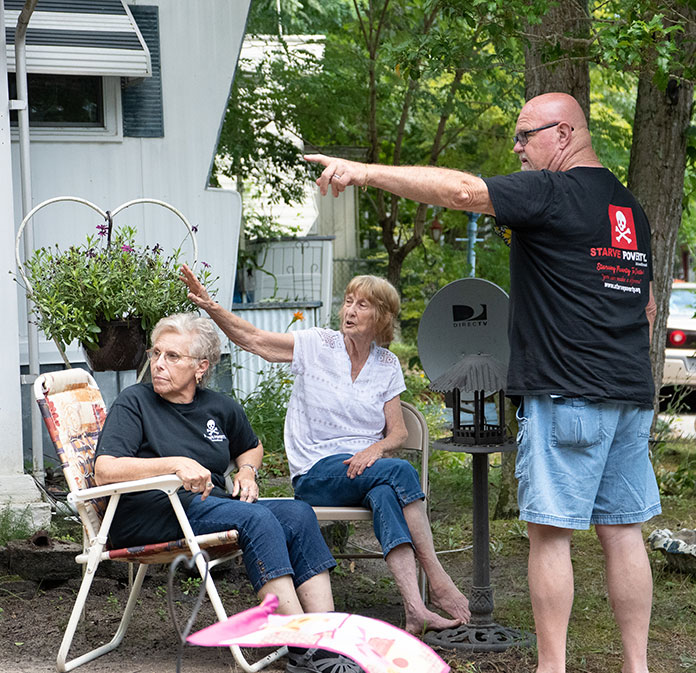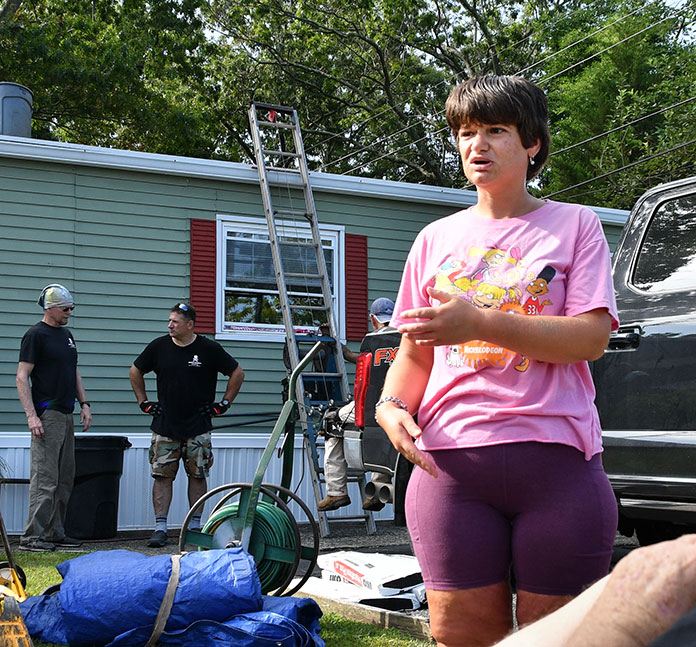
BARNEGAT – The decision of a local non-profit to incorporate a skull and crossbones as part of its logo might seem a bit contradictory. What in the world could a symbol of death have to do with providing community assistance?
Starve Poverty International Founder and CEO Ron Fraser said the emblem directly relates to his organization’s mission. The organization plans to do its part to starve poverty to death.
Barnegat Township recently agreed to lease the non-profit space in its firehouse on Route 72. Starve Poverty will pay the town just $1 per year for 15 years, and also has the opportunity to renew for another 15 years at the end of the term.
The group met with some opposition when another newspaper reported that the non-profit would be opening a soup kitchen on the premises. Others floated rumors that mentoring at-risk children meant the non-profit would be operating a drug rehabilitation on-site.
As it turns out, neither claim is true.

“We don’t have a soup kitchen here and we don’t plan to have one,” said Fraser. “I also want to make it abundantly clear that we’re not bringing in drug addicts or running a drug rehab.”
According to Fraser, the organization sees at-risk children as those who are underprivileged in different aspects. It may be their families are economically challenged or that they are growing up in a single parent home. The end goal is to teach the children valuable life skills, and prevent them from becoming troubled youth.
When the Barnegat Communities that Cares group became involved in a community garden, Starve Poverty stepped in and built the beds.
“We want to train kids how to utilize equipment tools and be safe with them,” Fraser shared. “Right now, one of the projects we’re teaching is how to build a shed. The principles of building a shed are the same that can be used in building a home.”
Organization leaders think it’s also critical that children learn about home maintenance tasks, such as repairing a toilet, and understanding what to do with a faulty light switch or a roof that needs repair.
While mentoring represents an important part of Starve Poverty’s work, they also chose to land in Barnegat for a reason. Fraser said that he did some research and determined there were three designated target areas for financial assistance in the township.
“That’s where our hearts are,” said Fraser. “We wanted to be where we could help the people who needed it most.”

Truth be told, Starve Poverty sits in the middle of two of two of those designated target areas. Residents of Pinewood Estates and Brighton primarily live on fixed incomes and are retired.
A couple of homeowners from both communities have already benefited from Starve Poverty’s commitment and expertise in the trades. Volunteers put on new roofs after ripping the old ones off and adding plywood sheathing for them.
“One house was for a woman in our church who was having a hard time and needed a roof,” Fraser shared. “We assembled a team of people and provided that service to her.”
Labor comes at no cost to those who receive help from Starve Poverty. Homeowners generally pay for the materials, except when it’s evident they cannot afford them.
“In this case, Bayside Chapel provided the materials,” said Fraser. “We provided the labor and the food for the laborers.”
Starve Poverty doesn’t limit its construction jobs to just replacing roofs. The non-profit is adding an addition to a home in Tuckerton to make it more accessible for a woman who is wheelchair bound. The group’s next project may involve building a ramp for a home in Ocean Acres.
The group actually came together as an organization 27 years ago. Fraser, an ordained pastor, explained how Starve Poverty and another of his vocations became a reality.
“When I was pastoring, I would spend a great part of my week just putting together the message for Sunday morning,” Fraser shared. “I would preach for about a half hour. If you asked 90 percent of the people a week later what the message was, they wouldn’t remember it.”
Fraser said that he asked God for guidance and felt directed to do both biblical counseling and help the impoverished. He continues to see eight to ten clients every Wednesday using the Word of God to counsel them.
As he reflected back, Fraser admitted that he had what he called an ungodly view of impoverished people. He was not proud of his feelings at the time of his life.
“I remember thinking that I had to get up to go to work,” said Fraser. “Why didn’t they?”
When he was at a pastor’s conference in Mexico, Fraser saw the level of poverty there. He felt that God grabbed his heart and just about took it right out of his chest.

“God spoke to me and clearly said you can make a difference,” Fraser said. “Those words are on quotes on our trailer. They represent what God said to me that changed my heart instantly towards impoverished people.”
Fraser took the words and put them to action in Mexico and Africa. For years, Starve Poverty concentrated its efforts on a Caribbean island called Exuma.
“We were there for 26 years building homes, renovating homes, and helping with food distribution,” shared Fraser. “We assisted in hurricane relief, helped single moms without husbands, and little children. We even built an orphanage down there.”
On occasion, Fraser still gets updates from people he helped in many places. His whole family is involved in what has become a targeted ministry to help others.
And, while Starve Poverty won’t be hosting a soup kitchen, it plans to open a food pantry. A group of 35 volunteers will set up and distribute food to those in need.
“The food items come from all over to stock the food pantry,” said Fraser. “This includes Fulfill and the Food Bank in Neptune.”
After Starve Poverty’s Food Pantry opens on February 3, it will continue to operate on Thursdays from 10 am to 1 pm.
As for the volunteers that work for Starve Poverty, Fraser puts it simply in a few words.
“It’s all about people helping people,” he said.
More information about Starve Poverty International can be found here: starvepoverty.org.






